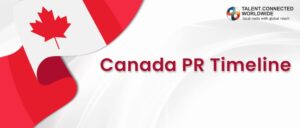
The best time to learn French for Canada PR usually takes 6 to 12 months. Canada is a country with two official languages- English and French. While Francophones live mainly in the province of Quebec, the English speaking population resides throughout the country. As a result, if you aim to become a Canadian Permanent Resident, taking a language proficiency test in French or English is a must. Immigration, Refugees and Citizenship Canada (IRCC) accepts IELTS and CELPIP for English proficiency, and TCF and TEF for French proficiency. The higher you score in your language tests, the better your chances of getting a Permanent Residence visa. In this blog we will tell you all the advantages you can get if you learn French for Canada PR.
Advantages of learning French for Canada PR

Immigration, Refugees and Citizenship Canada (IRCC) has recently made significant changes to Canada Immigration in order to promote and boost Francophones to settle not only in Quebec but also throughout the country. Once you learn French for Canada PR, you will increase your options and even get added advantages during the immigration process.
- You will get 50 extra points in the Comprehensive Ranking System (CRS): When you apply for Canada PR through the Express Entry system, you
- Create an Express Entry profile
- Get a CRS score out of 1200 points
- Get an ITA in Express Entry draws if your CRS score is equal to or higher than the announced cut-off
- Apply for Canada PR within 60 days of getting an ITA.
Thus, your CRS score is the deciding factor for getting an Invitation to Apply for a PR visa through Express Entry. IRCC recently made changes to the scoring criteria of the Comprehensive Ranking System where you can score 50 additional points if you score at least NCLC 7 or above in French, and CLB 5 or more in English proficiency test. Even if you do not give an English test, you will still get additional 25 points on scoring NCLC 7 or more in the French language test. Since Express Entry is a very competitive immigration pathway, getting additional points can guarantee you an ITA in the round of invitations.
- You will be eligible for category based Express Entry draws- If you are eligible for Express Entry, and are able to score at least 7 NCLC in either TCF or TEF, you might be eligible for the category based Express Entry draws. A category based selection issues ITA to one of the 6 categories:
- French language proficiency
- Healthcare occupations
- STEM occupations
- Trade occupations
- Transport occupations
- Agriculture and agri-food occupations
Being eligible for category based selection will make it easier for you to get an ITA in the Express Entry draw. The French language proficiency category also has a chance to announce a lower CRS cut-off. Hence, if you learn French for Canada PR, you will not only get additional CRS points but also might be eligible for category based Express Entry selection with a lower CRS cut-off.
- Increased chances of getting Certificat de Selection du Quebec (CSQ): If you learn French for Canada PR, the option of settling in Quebec becomes available. Quebec offers various immigration pathways to workers, graduates and entrepreneurs who are proficient in French. Getting a CSQ simply means that you are officially selected by Quebec to immigrate, You can then apply for Canada PR through the Quebec Selected Skilled Worker pathway.
- Become eligible for OINP French Speaking Skilled Worker: This stream under Ontario Immigrant Nominee Program or OINP is exclusively for applicants who are proficient in both French and English languages. However, you must have a valid Express Entry profile, to be eligible for this stream.
- The Francophone Mobility Program: If you can score NCLC 5 in either TCF or TEF, and meet other requirements, you can be eligible for the Francophone Mobility Program. It enables temporary foreign workers to qualify for PR pathways. It also increases their chances to get an ITA if they have a valid profile in the Express Entry system.
Thus, this is the best time to learn French for Canada PR because it:
- Gives you an edge over other applicants. If you are proficient in both English and French, you will undoubtedly have more CRS points than the ones who are proficient only in English. You can even cover up for the decreasing CRS points for age with the additional points scored for French proficiency.
- Become eligible for category based selections of Express Entry
- Additional Job opportunities. If you are proficient in both English and French, you will naturally have more opportunities to get employed. Being a bilingual skilled worker in Canada is an asset.
- You will be able to socially adjust better in Canada if you are proficient in both French and English. This makes you a skilled worker who can better embrace Canada’s diverse culture and foster strong connections with its people. This makes you an ideal applicant to become a Canadian permanent resident.
- French is predominantly used in government services, academia, and healthcare services. If you learn French for Canada PR, your everyday life in the country will definitely become smoother.
How to learn French for Canada PR?

In order to learn French for Canada PR, you must prepare well in advance. Immigration, Refugees and Citizenship Canada accept TEF and TCF tests for French language proficiency. Just like any other language, learning French needs progressive preparation, practice, and discipline. You can follow the tips below in order to begin your preparation for the French test.
- Know where you stand. The first step is to honestly gauge your current proficiency level in French. You can appear for free mock tests abundantly available online.
- Watch French movies, and TV shows, and listen to podcasts and music, to get familiar with the language and grasp its diction.
- Set a schedule and follow it diligently and consistently.
- If possible, join French communities, attend cultural events or interact with people fluent in the language.
- Re-take mock tests and assess your progress in regular intervals.
- Pay dedicated attention to the language and vocabulary used in immigration. It will be useful during interviews and the filling of the forms in the PR process.
- Pay dedicated attention to all the fields of writing, reading, speaking, and listening.
- If necessary, enroll in a French language course that is specially designed for immigration purposes.
- Use language learning apps such as Duolingo.
You should learn French for Canada PR as it drastically increases your chances of successfully immigrating and settling in the country.
Cannot speak French yet? It should not deter you from creating a profile. Contact us and let us explore all the options available for you.
Don’t forget to fill the form below to get some insights and advice from our experts!






